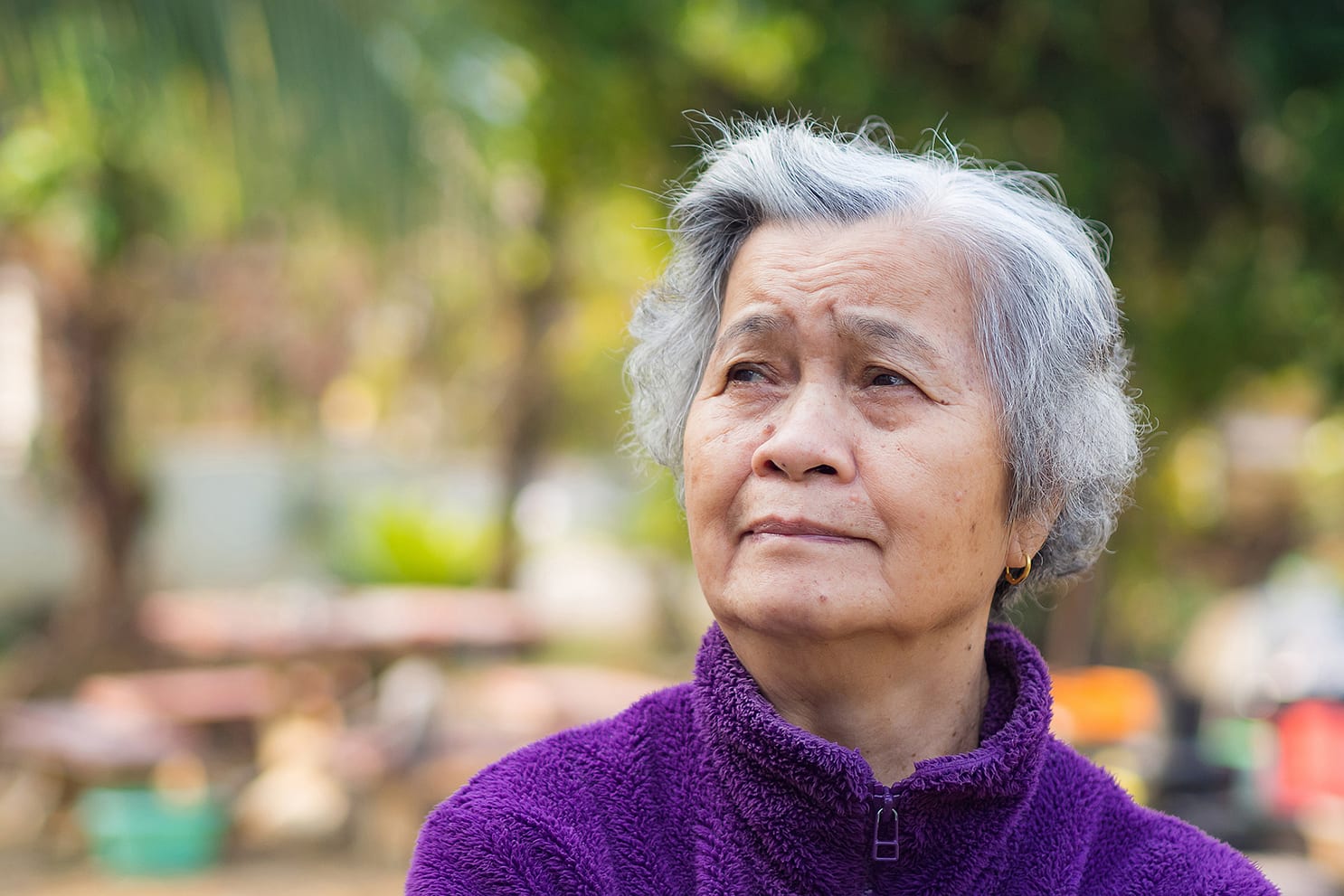If you are caring for a loved one with Alzheimer’s or another form of dementia, you may be familiar with the different levels of this progressive illness. But if you are the primary caregiver, you may also wonder if you’ll be able to continue to provide the kind of care needed at home.
It’s important to consider not only the changing needs of the individual with dementia but also the health and stamina of the caregiver. A very real consequence of Alzheimer’s is the toll the illness can take on those providing care.
Factors to consider when offering care at home
The option of whether to continue care at home or to turn to a memory care community typically will depend on the changes to either the individual, the caregiver or both. Answers to the following questions often begin the conversation whether care at home is still appropriate:
- Has your loved one’s quality of life improved, maintained or declined?
- Are your loved one’s basic needs still being met?
- Is their physical health deteriorating to a level where the caregiver needs more help?
- Is the caregiver’s physical or emotional health declining?
Signs that memory care may be needed
Having a better understanding of the pathway that dementia most likely takes can help the caregiver feel better prepared to look ahead.
Below are 5 common occurrences that may signal to the family that more care is needed:
- Your loved one may no longer be safe
The natural progression of Alzheimer’s can lead to safety and security concerns. One common behavior that can occur at any stage of the illness is wandering. Although the reasons vary, your loved one may be looking for someone, want to go home or believe it’s time to go to work.
When those with dementia wander, they may not recognize where they are or know how to get back home. They can be at risk of walking into traffic or feeling threatened by strangers they may encounter. They also may not know how to call someone for help.
- Your loved one’s physical health has deteriorated
People sometimes believe that Alzheimer’s only affects the memory. But the illness impacts a person’s physical health as well. Individuals may lose their ability to walk or stand. They may also become unable to get up from a chair or bed, signaling that additional care may now be needed.
Others might experience a loss of balance and increased falls. Stiff or weak muscles and fatigue may occur, as well as an interruption to normal sleep patterns, requiring the caregiver to be awake as well. Having trouble with bladder or bowel control or suffering from seizures can be other physical changes.
- Your loved one’s behavior may become aggressive or violent
One of the more unfortunate consequences of Alzheimer’s is the change in behavior. It’s hard for families when their loved ones no longer remember who they are or their relationship but if behavior becomes aggressive, families often see this as a sign that memory care is needed.
Although the person is not acting this way on purpose, they can become aggressive or possibly even violent. If so, action will need to be taken. The causes of the behavior can range from physical discomfort to pain to feeling frustrated. If the person can’t calm down, is a threat to self or others, assistance is needed immediately.
- The caregiver’s health is deteriorating
Caregiving for a loved one with dementia or Alzheimer’s can require much more from a person than if they were watching over someone with only a physical illness. Not only are more direct supervision hours required, the type of care and changes your loved one undergoes can take a much bigger emotional toll.
It’s not uncommon for the caregiver’s own health to begin to suffer as it is often disregarded or gets lost in all the day’s responsibilities. Caregivers may find that they are missing doctor’s appointments, not eating right or getting any exercise. One of the more detrimental effects is having little to no respite from the stresses of the day.
- Your loved one needs 24-hour attention
Eventually, your loved one will need supervision 24-hours a day, seven days a week. That is a lot to put on a single set of shoulders. Depending on your family situation or where you live, locating respite care can be difficult. The challenge may also be finding someone who can provide the type of care your loved one needs.
In order for caregivers to be able to continue, they must be able to take care of their own health, other personal business or to leave in case an emergency arises. It can be extremely difficult to handle all of life’s responsibilities and be a full-time caregiver.
Life at Tapestry Senior Living communities
We understand the challenges that families face as they care for their loved ones at home. We also are empathetic to those who are no longer able to continue care once the needs have exceeded what they can provide.
Our priorities are the safety and quality of life for residents and we are here to offer our services and support to both them and the family.
Our staff is trained to compassionately interact and respond to those who are living with a cognitive illness, including the above mentioned changes that can make providing care at home so challenging.
We also understand that making this decision can be very difficult for the family and we are here as a resource to answer any questions that you may have regarding memory care, the benefits to your loved one and the services and support we offer to the family.
If your family is considering senior living, we invite you to download our free guide and resource on how to decide between home and senior living, Should You Stay or Should You Go?
Our person-centered approach, services, amenities and activities all play an important role in helping your loved one and family live a meaningful and connected life. If you have any questions or would like to schedule a personal tour, please contact one of our advisors at a community near you.






